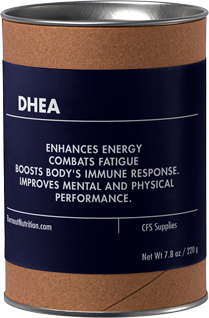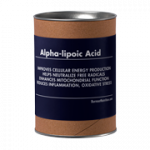How DHEA Might Help People with Chronic Fatigue Syndrome
Chronic Fatigue Syndrome (CFS) is a complex disease characterized by extreme fatigue that cannot be explained by any underlying medical condition. Among the strategies to alleviate symptoms of CFS, the use of Dehydroepiandrosterone (DHEA) is one of them.
DHEA is a hormone produced naturally in the body by the adrenal glands. It can be converted into other important hormones like testosterone and estrogen. Despite the exact mechanism being unclear, here are potential ways DHEA may be beneficial to people with CFS:
1. Reduction of fatigue: Some research suggests that DHEA may help alleviate symptoms of chronic fatigue. As a precursor to essential hormones, DHEA may help improve energy levels.
2. Improvement of mental function: DHEA could enhance mood and cognition, improving the mental fog that often accompanies CFS.
3. Boosting the immune system: Some evidence implies that DHEA might have an immune-enhancing effect, which could be beneficial for people with CFS, as they often have weakened immune function.
However, it’s important to mention that although DHEA might have potential benefits, it still requires further research.

- Enhances energy, combats fatigue.
- Boosts body’s immune response.
- Improves mental and physical performance.
- Helps regulate stress response.
- Promotes hormonal balance.
DHEA: Purchase | Dosage | Benefits | Science
Buy DHEA online:
We do not currently recommend any sources for buying DHEA online.
Important Note: This information serves as a guideline only and should NOT replace specialist advice. Always consult your doctor, pharmacist or a health care professional like a nutritionist before starting any new treatment.
DHEA Dosage for Chronic Fatigue
Recommended Doses for DHEA for Chronic Fatigue Syndrome:
- For adult males (around ages 19-50): 50-100 mg per day.
- For adult females (around ages 19-50): 25-50 mg per day.
- For seniors (folks over age 50): Dosage can vary widely, often recommended to start low at 10-25 mg per day, and adjust based on response and tolerance.
The recommended doses for DHEA (dehydroepiandrosterone) for chronic fatigue syndrome can vary based on individual’s health condition. However, some studies suggest a dose of 25 to 200 mg per day. Remember, always consult with a healthcare provider before starting any new supplement regimen.
DHEA Benefits for Chronic Fatigue
- Improves overall energy levels.
- Boosts immune system function.
- Enhances mental clarity and focus.
- Supports adrenal gland function.
- Helps regulate stress responses.
1. Boosts Energy Levels: DHEA supplements are well-known for their ability to increase energy levels which people with chronic fatigue syndrome often struggle with. These nutrients energize the body by enhancing metabolic functions.
2. Improves Mood and Mental Clarity: Low DHEA levels are linked to depression and cognitive decline. DHEA supplementation enhances mood, reduces depression, and increases mental focus and clarity, enhancing overall well-being.
3. Restores Hormonal Balance: DHEA is a precursor to male and female sex hormones (testosterone and estrogen). People with chronic fatigue syndrome often have a hormonal imbalance, and DHEA supplementation helps to restore this balance.
4. Enhances Immune System: Research shows that DHEA can boost the immune system’s response by promoting the production and function of white blood cells. This is critically beneficial for those suffering from chronic fatigue syndrome as the disease often compromises the immune system.
5. Reduces Inflammation: Chronic inflammation contributes to fatigue and numerous other health problems. DHEA supplementation has been proven to help reduce inflammation, thus, potentially help counter the effects of chronic fatigue syndrome.
DHEA Science for Burnout recovery
A pilot study employing Dehydroepiandrosterone (DHEA) in the treatment of chronic fatigue syndrome | ⏍
This study looks into DHEA supplementation in CFS patients, finding significant reduction in symptoms like pain, fatigue, and anxiety.
Levels of DHEA and DHEAS and responses to CRH stimulation and hydrocortisone treatment in chronic fatigue syndrome | ⏍
This paper explores the levels of DHEA and its sulfate form in persons with CFS, offering insights into hormonal imbalances associated with the condition.
A preliminary study of dehydroepiandrosterone response to low-dose ACTH in chronic fatigue syndrome and in healthy subjects | ⏍
Research assessing the response of DHEA to ACTH stimulation in CFS patients compared to healthy individuals.
Dehydroepiandrosterone sulfate deficiency in chronic fatigue syndrome | ⏍
Investigates the potential deficiency of DHEA sulfate in patients with chronic fatigue syndrome.
Replacement therapy with DHEA plus corticosteroids in patients with chronic inflammatory diseases–substitutes of adrenal and sex hormones | ⏍
A review discussing the therapeutic effects of combining DHEA with corticosteroids in the treatment of chronic inflammatory diseases.
Natural sources of DHEA
Dehydroepiandrosterone (DHEA) is a hormone produced by the body’s adrenal glands and cannot be sourced directly from the foods we eat. However, you can include certain foods in your diet that may stimulate the body to produce DHEA naturally. These include:
- Beans and legumes
- Meat and poultry
- Dairy products
- Eggs
- Fish
- Nuts and seeds
- Cruciferous vegetables like broccoli, cauliflower, and Brussels sprouts
- Healthy fats like avocados and olive oil

Regular exercise and maintaining a healthy lifestyle can also help the body to produce optimal levels of DHEA.
Remember that it’s important to consult with a healthcare professional before making significant changes to your diet or exercise regimen.
Our favourite DHEA brand
We do not currently recommend any sources for buying DHEA online.





